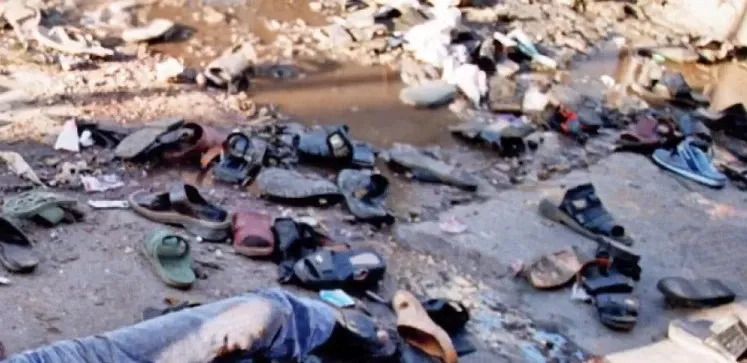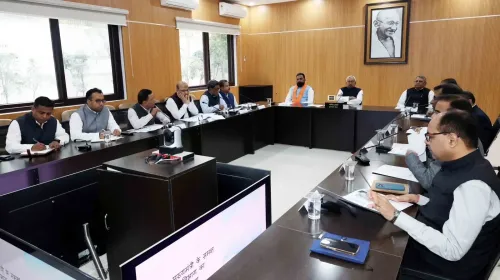Why is the Awami League Condemning the Judiciary for Supporting ‘Inhuman Politics of Mass Killing’?

Synopsis
Key Takeaways
- Awami League condemns judiciary's ruling
- Acquittal of 49 defendants raises concerns
- Impact on public trust in justice
- Historical context of the 2004 grenade attack
- Commitment to justice remains strong
Dhaka, Sep 5 (NationPress) The Awami League of Bangladesh has vehemently criticized the unprecedented utilization of the country's judiciary to endorse “inhuman, conspiratorial politics of mass killing”. These comments were made following the acquittal of 49 defendants by the nation's highest court on Thursday regarding the horrific grenade attack in Dhaka in 2004, which resulted in the death of 24 individuals and left hundreds injured.
Local news outlets reported that the Appellate Division of the Supreme Court confirmed the 2024 High Court's decision that exonerated all 49 defendants, including Tarique Rahman, the Acting Chairman of the Bangladesh Nationalist Party (BNP), and former state minister Lutfozzaman Babar.
“This shows that in contemporary Bangladesh, the judiciary is not serving justice, but rather compromising the rights of those seeking justice. The individuals culpable for a large-scale massacre in broad daylight have been set free. What a heinous and ruthless action! Who then bears the responsibility for the tragic loss of life during this appalling event? The accountability for this lies with the court,” the Awami League's statement declared.
“The Awami League asserts that this ruling is not only a betrayal of justice but also a troubling indication that validates the politics of murder and conspiracy. By tarnishing the reputation of the judiciary, an unprecedented and disgraceful legacy has been established before humanity. Utilizing the court to exonerate the murderers is a vile mockery of democracy, justice, and human rights,” the statement further noted.
The grenade attack on August 21, 2004, was executed during the coalition government of the BNP and the radical Islamist group Jamaat-e-Islami, targeting an Awami League rally led by then-opposition leader Sheikh Hasina at Bangabandhu Avenue in Dhaka.
According to the Awami League, Sheikh Hasina and the top leadership of the Awami League were the primary targets of this attack, intended to eliminate them permanently. In this brutal assault, the party reported that 24 lives were lost and hundreds suffered severe injuries, with many enduring the pain of grenade shrapnel embedded in their bodies.
In denouncing the ruling, the party expressed that this “farcical ruling” concerning the August 21, 2004, massacre would lead Bangladesh to the brink of a “deep abyss”. It cautioned that the nation would become a glaring example of dysfunction, eroding public trust in state efficacy, justice, and citizens’ rights. The Awami League emphasized that Bangladesh cannot progress amid such pervasive mistrust and skepticism among its populace.
“This contrived verdict has harmed and angered the profound humanitarian spirit filled with compassion. Together with the democratic and compassionate people of this land, our relentless struggle against this disgraceful incident will persist, and one day, through a bright dawn, those denied justice will attain it,” the party affirmed.
Reiterating that delivering justice for the victims remains the Awami League's steadfast political commitment, the party vowed that the trial of this disgraceful chapter in national history will eventually take place on Bangladeshi soil.










